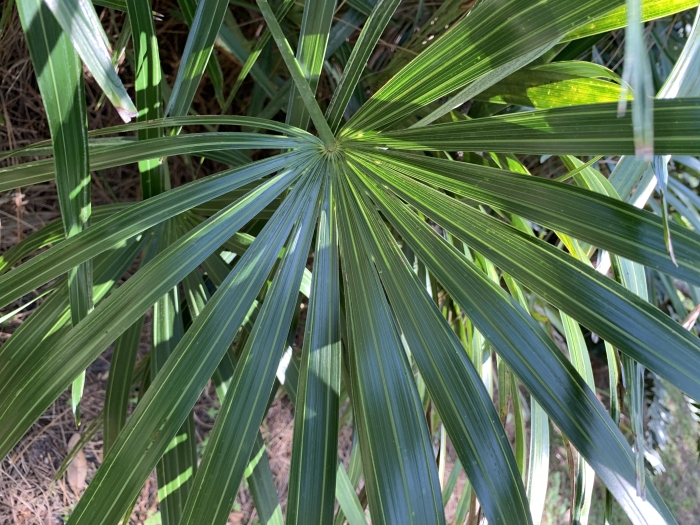Needle Palm
(Rhapidophyllum hystrix)
Needle Palm (Rhapidophyllum hystrix)
/
/

KATHERINE WAGNER-REISS
CC BY-SA 4.0
Image By:
KATHERINE WAGNER-REISS
Recorded By:
Copyright:
CC BY-SA 4.0
Copyright Notice:
Photo by: KATHERINE WAGNER-REISS | License Type: CC BY-SA 4.0 | License URL: https://creativecommons.org/licenses/by-sa/4.0 | Uploader: KATHERINE WAGNER-REISS | Publisher: Wikimedia Commons | Title: Rhapidophyllum_hystrix_at_Port_St._Lucie_Botanical_Garden.jpg | Notes: Preparing upload using [[User:Flickr upload bot|Flickr upload bot]] |












































































Estimated Native Range
Summary
Rhapidophyllum hystrix, commonly known as Needle Palm, is an evergreen shrub native to the understory of forests and along forest margins in the Southeastern United States. It is renowned for being one of the most cold-hardy palms in the world. The Needle Palm features a clumping form with multiple stems emerging from a single base, growing slowly and tightly together to form a dense base 1–1.2 m (3.3–3.9 ft) tall. The plant is armed with sharp needle-like spines, 10–25 cm (3.9–9.8 in) long, which protect the stem’s growing point from browsing animals. The overall height of the plant, including the erect central leaves, can reach 2–3 m (6.6–9.8 ft). As a fan palm, it bears dense, short clusters of flowers at the stem tops, typically dioecious with male and female flowers on separate plants. The fruit is a brown drupe approximately 2 cm (0.79 in) long.
The Needle Palm is highly valued for its exceptional cold tolerance, reportedly surviving temperatures as low as −26 °C (−15 °F) with significant damage, but capable of recovery. More commonly, it can withstand −21 °C (−5 °F) with some foliar damage. It thrives in full sun to part shade, requiring medium water and well-drained soil. This palm is often used in temperate gardens for its compact size, textural foliage, and resilience to cold. It is suitable for understory plantings, as a specimen in small gardens, or in containers. However, gardeners should be cautious of its spiny protection when planting in areas with foot traffic.CC BY-SA 4.0
The Needle Palm is highly valued for its exceptional cold tolerance, reportedly surviving temperatures as low as −26 °C (−15 °F) with significant damage, but capable of recovery. More commonly, it can withstand −21 °C (−5 °F) with some foliar damage. It thrives in full sun to part shade, requiring medium water and well-drained soil. This palm is often used in temperate gardens for its compact size, textural foliage, and resilience to cold. It is suitable for understory plantings, as a specimen in small gardens, or in containers. However, gardeners should be cautious of its spiny protection when planting in areas with foot traffic.CC BY-SA 4.0
Plant Description
- Plant Type: Shrub
- Height: 3-6 feet
- Width: 4-8 feet
- Growth Rate: Slow
- Flower Color: N/A
- Flowering Season: Summer
- Leaf Retention: Evergreen
Growth Requirements
- Sun: Full Sun, Part Shade
- Water: Medium
- Drainage: Medium
Common Uses
Deer Resistant, Low Maintenance, Potted Plant, Salt Tolerant, Street Planting
Natural Habitat
Understory of forests and along forest margins
Other Names
Common Names: Blue Palmetto
Scientific Names: , Rhapidophyllum hystrix, Chamaerops hystrix, Corypha hystrix, Rhapis caroliniana, Sabal hystrix,
GBIF Accepted Name: Rhapidophyllum hystrix (Fraser ex Thouin) H.Wendl. & Drude